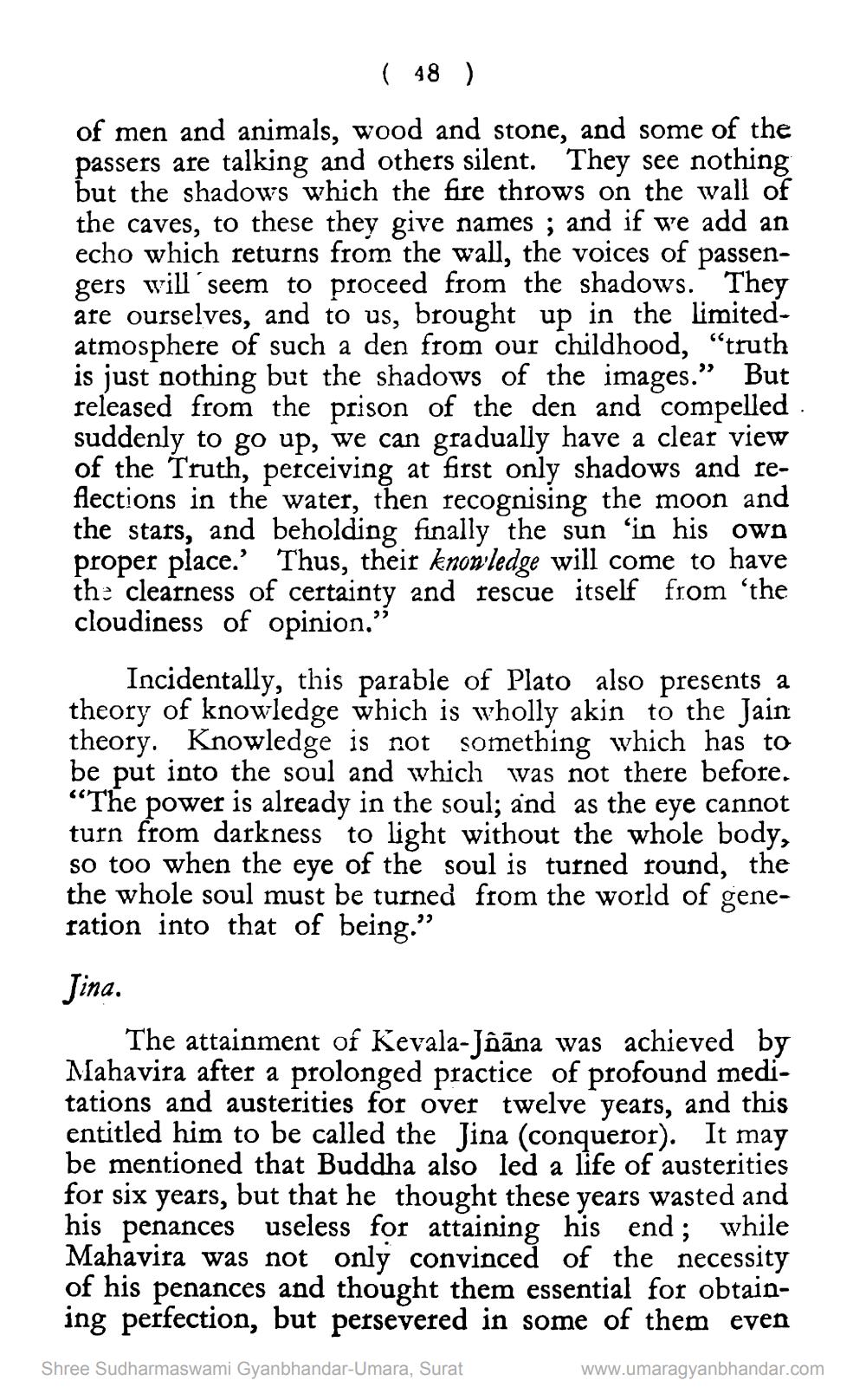________________
( 48 ) of men and animals, wood and stone, and some of the passers are talking and others silent. They see nothing but the shadows which the fire throws on the wall of the caves, to these they give names ; and if we add an echo which returns from the wall, the voices of passengers will seem to proceed from the shadows. They are ourselves, and to us, brought up in the limitedatmosphere of such a den from our childhood,"truth is just nothing but the shadows of the images.” But released from the prison of the den and compelled suddenly to go up, we can gradually have a clear view of the Truth, perceiving at first only shadows and reflections in the water, then recognising the moon and the stars, and beholding finally the sun'in his own proper place. Thus, their know'ledge will come to have the clearness of certainty and rescue itself from the cloudiness of opinion.”
Incidentally, this parable of Plato also presents a theory of knowledge which is wholly akin to the Jain theory. Knowledge is not something which has to be put into the soul and which was not there before. “The power is already in the soul; and as the eye cannot turn from darkness to light without the whole body, so too when the eye of the soul is turned round, the the whole soul must be turned from the world of generation into that of being.”
Jina.
The attainment of Kevala-Jõāna was achieved by Mahavira after a prolonged practice of profound meditations and austerities for over twelve years, and this entitled him to be called the Jina (conqueror). It may be mentioned that Buddha also led a life of austerities for six years, but that he thought these years wasted and his penances useless for attaining his end; while Mahavira was not only convinced of the necessity of his penances and thought them essential for obtaining perfection, but persevered in some of them even
Shree Sudharmaswami Gyanbhandar-Umara, Surat
www.umaragyanbhandar.com




